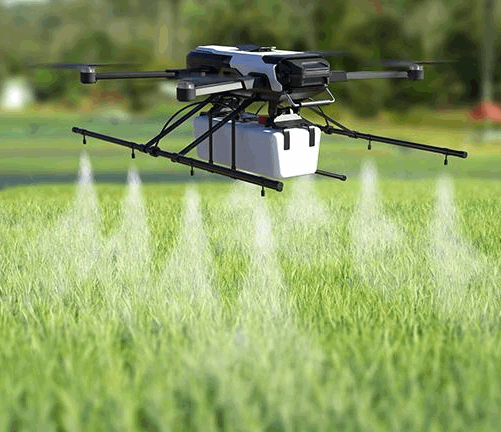By harnessing real-time data processing capabilities at the edge, farmers can make precise decisions that optimize resource usage, enhance crop quality, and reduce environmental impact. As technology continues to advance, the integration of AI and edge orchestration will play a pivotal role in shaping the future of agriculture, ensuring food security and sustainability for generations to come.
India, with its vast agricultural landscape, is witnessing a transformative shift in the way farming is conducted, thanks to the integration of Artificial Intelligence (AI). As the demand for food surges with a growing population, the adoption of cutting-edge technologies becomes imperative to ensure sustainable and efficient agricultural practices. In this blog, we will explore the various ways in which AI is making a significant impact on Indian farming, revolutionizing traditional methods and paving the way for a more resilient and productive agricultural sector.
- Precision Farming:
One of the key applications of AI in Indian agriculture is precision farming. AI-driven technologies enable farmers to analyze and interpret data related to soil health, weather conditions, and crop performance. By using sensors, drones, and satellite imagery, farmers can make informed decisions regarding irrigation, fertilization, and pest control. This precision approach not only enhances crop yields but also minimizes resource wastage, making agriculture more sustainable.
- Crop Monitoring and Disease Prediction:
AI-powered tools can monitor crops in real-time, detecting early signs of diseases and pest infestations. This proactive approach allows farmers to take timely action, preventing the spread of diseases and minimizing crop losses. Machine learning algorithms analyze data from various sources, such as images captured by drones or sensors, to identify patterns and predict potential threats to crops.
- Smart Irrigation Systems:
Water scarcity is a pressing issue in many parts of India, and efficient water management is crucial for sustainable agriculture. AI-driven smart irrigation systems help farmers optimize water usage by monitoring soil moisture levels and weather conditions. By automating irrigation based on real-time data, farmers can ensure that crops receive the right amount of water, reducing water wastage and enhancing overall crop productivity.
- Crop Yield Prediction:
AI algorithms analyze historical and current data to predict crop yields accurately. By considering factors such as weather patterns, soil quality, and crop health, these predictive models assist farmers in planning harvests more efficiently. Accurate yield predictions enable better market planning, reducing post-harvest losses and ensuring a more stable income for farmers.
- Supply Chain Optimization:
AI plays a crucial role in optimizing the agricultural supply chain. From predictive demand forecasting to route optimization for transportation, AI algorithms streamline the movement of agricultural produce from farms to markets. This not only reduces waste but also ensures that farmers receive fair prices for their produce.
- Financial Inclusion for Farmers:
AI is also contributing to financial inclusion for farmers in India. Platforms that utilize AI and machine learning assess creditworthiness based on various data points, allowing farmers to access loans more easily. This, in turn, empowers them to invest in modern farming techniques and technologies, breaking the cycle of poverty in rural areas.
Conclusion:
The integration of Artificial Intelligence in Indian agriculture is not just a technological advancement; it is a transformative force that has the potential to uplift the entire agricultural sector. From precision farming to financial inclusion, AI is addressing the challenges faced by farmers and paving the way for a more sustainable, efficient, and resilient future of Indian agriculture. As we embrace these technological innovations, it is essential to ensure that the benefits of AI reach every corner of rural India, fostering inclusive growth and prosperity for all stakeholders in the agricultural value chain.
